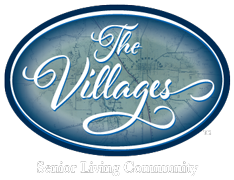While it’s true that most individuals who experience this condition are older adults, dementia isn’t an inevitable component of growing older.
Individuals aged 65 and older are more likely to be diagnosed with dementia as symptoms appear more obvious, making it easier to differentiate them from normal lapses in memory. But, dementia can also affect younger adults.
Plus, symptoms of dementia can develop years or even decades before a formal diagnosis. Therefore, there is no exact age at which dementia can set in.
Understanding Dementia
Dementia is a condition that affects millions and is characterized by a decline in cognitive function, beyond what we expect from typical aging.
Dementia isn’t a single disease, but a collective term that describes various symptoms affecting memory, language, reasoning, and social abilities. Memory loss is a common symptom but different types of dementia can exhibit varying behaviors and cognitive decline.
Living with dementia can be challenging as individuals and their families learn to navigate the progressive nature of this condition. Dementia significantly impacts overall health and wellness by affecting an individual’s ability to perform daily tasks, communicate, and maintain independence.
The seriousness of dementia lies in its irreversible nature. Symptoms of dementia worsen over time, increasing the need for support and care as individuals require additional assistance with daily tasks.
When Can Dementia Set In?
There isn’t a definitive age for dementia to set in as it’s different for every individual, although, the likelihood of developing this condition increases with age.
It’s vital to differentiate between the age at which dementia begins to develop and the age at which it’s most commonly diagnosed. A diagnosis doesn’t necessarily align with the actual onset of the disease.
Typically, dementia is diagnosed in individuals who show obvious symptoms of cognitive decline that differ from the natural aging process. For instance, it’s normal to forget things or misplace objects, but not so frequently to where it interferes with daily functioning.
Dementia is more prevalent in individuals 65 years old, but it can also affect younger adults. This is known as early-onset dementia, which can begin as early as 30s, 40s, or 50s and isn’t as common. Therefore, symptoms of dementia can start to develop years, or even decades before a formal diagnosis.

Stages of Dementia
To help understand the progression of symptoms and their severity, dementia is often discussed in stages:
- Early Stage: In this phase, individuals might experience subtle memory lapses or difficulties with complex tasks, often going unnoticed or misattributed to normal aging.
- Middle Stage: Dementia is most commonly diagnosed in this stage because symptoms become more pronounced, significantly impacting daily activities, and requiring assistance with routine tasks.
- Late Stage: The cognitive decline is severe, and individuals may lose the ability to interact with the environment, require full-time care, and experience significant physical decline.
Since dementia can occur at any age, even in younger adults, staying vigilant about cognitive health helps promote early recognition and management.
Identifying early signs of dementia relies on recognizing certain behavioral and cognitive changes that may initially appear subtle:
- Persistent memory loss that disrupts daily activities.
- Difficulty finding the right words during conversations.
- Challenges completing routine tasks like paying bills or using familiar devices.
- Mood and personality changes, such as becoming suspicious, or anxious, without a clear reason.
- A noticeable decline in decision-making abilities and problem-solving skills.
Monitoring these signs carefully allows for prompt medical evaluation, leading to an early diagnosis and management, helping to support one’s quality of life.
When to Consider Memory Care
Memory care plays a notable role in supporting individuals experiencing dementia. This specialized long-term care environment is tailored for individuals experiencing dementia, and other forms of cognitive decline.
In memory care it’s common to find:
- Professional staff trained to handle resident’s unique behavioral and cognitive challenges.
- Personalized care plans tailored to meet the distinct needs of residents.
- A safe, structured environment that promotes daily routine.
- Specialized therapies and activities that stimulate cognitive function, and encourage active participation and social interaction.
For families, memory care offers peace of mind knowing their loved ones are in a caring and safe professional environment. This allows them to take a break from full-time caregiving and focus on creating lasting memories with their loved ones.
Signs it Might be Time for Memory Care
While memory care offers a supportive and caring environment for residents and their families, not everyone with dementia will require this level of care.
Similar to how there’s no distinct age for dementia to set in, there is no “right time” for memory care. Ultimately, transitioning into memory care is highly suggested once an individual’s ability to independently care for themselves declines.
Some signs to look out for that suggest your loved one may benefit from memory care include:
- Frequent incidents of wandering or getting lost.
- Increased difficulty completing daily tasks like dressing, bathing, or managing medications.
- Substantial mood swings or personality changes.
- If caregivers are experiencing burnout.
Making this decision helps confirm the safety and well-being of your loved one while continuing to nurture memories and connections between residents and their families.
Book a Tour
Similar to how no one individual is the same, neither is one’s experience with dementia. Our memory care team harnesses this approach when developing personalized care plans for our residents.
There is no distinct age for dementia to set in nor is there a right time for memory care. However, there is always time to explore and understand how memory care plays an important role in caring for those experiencing dementia.
Connect with our team at The Villages of Murfreesboro to book a tour of our memory care community.




